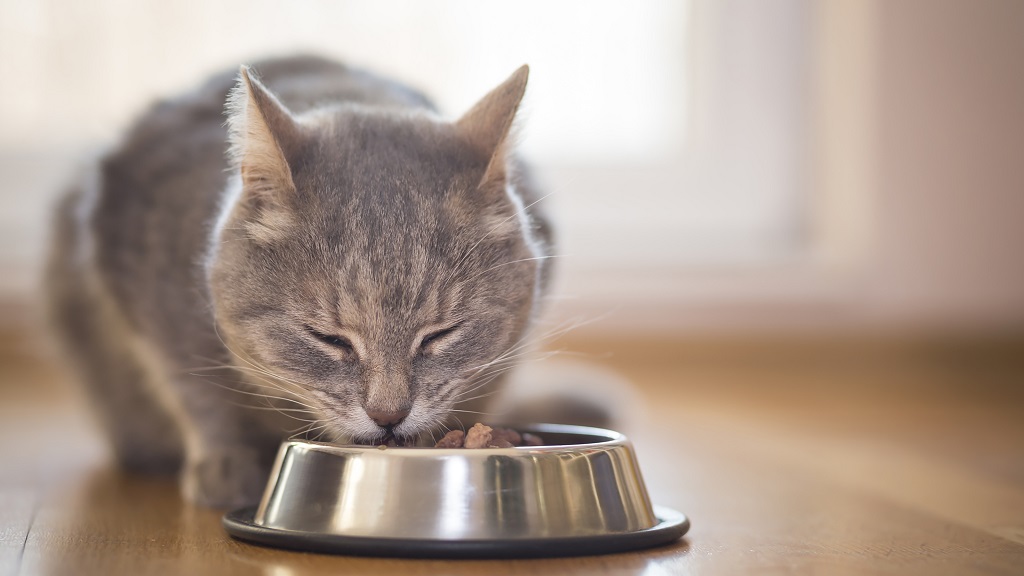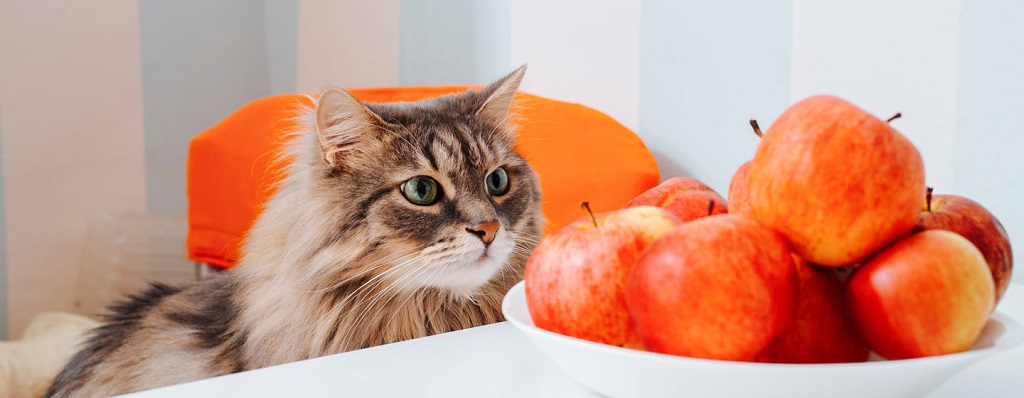As a cat owner, you may be wondering whether your furry friend can safely eat apples. After all, cats are curious creatures that will often try to eat anything that piques their interest. In this article, we’ll take a closer look at whether cats can eat apples and what potential benefits or risks they may pose. This content is prepared by Homepetusa.com.
Understanding Cats’ Dietary Needs

Before we dive into whether cats can eat apples, it’s essential to understand their dietary needs. Cats are obligate carnivores, meaning that they require a diet rich in animal protein to survive. Unlike humans, cats cannot produce certain essential nutrients, such as taurine, on their own, so they must obtain them through their diet.
A balanced and healthy diet for cats should consist of high-quality animal protein, such as chicken, fish, or beef. Cats also require essential fatty acids, vitamins, and minerals to maintain their health. Look also: HOW MANY PETS IS TOO MANY
Can Cats Eat Apples?
The short answer is yes, cats can eat apples, but only in moderation. Apples are not toxic to cats, and they can provide some nutritional benefits. Apples are a good source of dietary fiber, vitamin C, and antioxidants. However, they are not a significant source of the essential nutrients that cats require, such as taurine and arachidonic acid.
When feeding your cat apples, it’s essential to ensure that they are peeled, cored, and sliced into small pieces. Apple seeds contain cyanide, which is toxic to cats and can cause serious health problems. Additionally, some cats may be allergic to apples or may have difficulty digesting them, which can cause stomach upset or diarrhea.
The Benefits of Feeding Apples to Cats
While apples may not be an essential part of a cat’s diet, they can offer some health benefits when fed in moderation. Apples are low in calories and high in dietary fiber, which can help promote healthy digestion and weight management. Additionally, apples contain antioxidants, which can help boost your cat’s immune system and protect against disease.
Risks of Feeding Apples to Cats
While apples are generally safe for cats to eat, there are some potential risks to be aware of. As mentioned earlier, apple seeds contain cyanide, which can be toxic to cats in large quantities. Additionally, some cats may be allergic to apples, which can cause itching, swelling, or other symptoms.
Feeding your cat too many apples can also cause stomach upset or diarrhea, particularly if they are not used to eating fruit. It’s essential to introduce any new food slowly and in small amounts to avoid digestive upset.
Alternatives to Apples for Cats
If you’re looking for healthy and safe fruits to feed your cat, there are several alternatives to apples that they may enjoy. Some cats enjoy eating small amounts of berries, such as strawberries, blueberries, or raspberries, which are also high in antioxidants and dietary fiber. Other safe fruits for cats include bananas, cantaloupe, and watermelon, which are all rich in vitamins and minerals.
In conclusion, cats can eat apples in moderation as part of a balanced and healthy diet. Apples are not toxic to cats, and they can provide some nutritional benefits, such as dietary fiber and antioxidants. However, it’s essential to prepare apples properly and feed them in small amounts to avoid potential risks, such as cyanide toxicity or digestive upset.
If you’re not sure whether your cat can eat a particular food, it’s always best to consult with your veterinarian to ensure that it’s safe and appropriate for their dietary needs.

